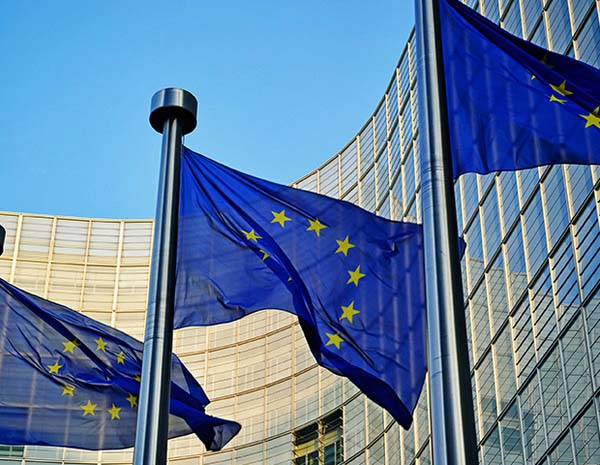Bernhard Schulte Shipmanagement (BSM) says it is developing solutions to support customers to navigate the complexity of the upcoming EU Emissions Trading System (ETS) requirements, which will be introduced for the maritime sector from 2024.
BSM CFO Sebastian von Hardenberg said: “BSM has been focusing on the EU Emissions Trading System for some time because it will have extensive impact on our and our clients’ business”, says . “We invest in the development of specialist teams and IT tools required to ensure a smooth EU ETS process and certificate administration for owners and their charterers. As ship managers we will offer transparent live data driven applications showing a vessel’s consumption in relation to geolocation and time as well as the resulting EU ETS exposure.”
The ship management company is currently developing a platform that will cover the entire process of EU ETS handling including compliance, data collection and verification, emissions forecasts, registration management, carbon allowance processes and more. The single source dashboard will be included in the existing digital ship management system.
Anil Jacob, Head of BSM Fleet Performance Centre, said: “In the first step we have realised a voyage history view for daily and total EU relevant CO2 emissions and EU allowances required. In a second step, we will provide forecasts for the relevant ship’s emissions to be expected in the future.”
Reliable forecasts are of crucial importance. Their quality will be decisive how precise the need for necessary carbon allowances is calculated. Finally, tools for accounting and handling of the certificates are considered. Jacob and his team are developing the technical solution, which will not be simple as many details of the EU requirements are still to be finalised. The triangular link between owner, charterer and ship manager still holds uncertainties.
Von Hardenberg continued: “The question who actually buys the certificates will, in practice, depend on the commercial agreements between the charterer, owner and ship manager involved. Some shipowners and charterers may, for whatever reason, be unwilling to set up trading or EU ETS teams. For those we as BSM will be prepared to take this responsibility over as part of the commercial management task basket we offer.”
As per the polluter pays principle, the responsibility to pay for EUA certificates first lies with the charterer then the shipowner. However, in the eyes of the EU regulator the statutory responsibility for non-compliance lies with the DOC (Document of Compliance) holder.
Von Hardenberg said: “As a DOC holder, this will expand the exposure and tasks of a ship manager. At the same time, it will strengthen our role as part of the maritime industry – if we are able to offer strong solutions to master these complex requirements. We are working on this with vigour and consistency.”
Per EU ETS regulations, shipowners and operators will need to acquire emission permits for 40% of their applicable emissions in 2024, increasing to 70% in 2025, and 100% in 2026 and every year thereafter. This is applicable to intra-EU voyages and voyages between EU ports and non-EU ports. The costs caused should not be underestimated as calculated by BSM on a reference ship. They depend not only on emitted emissions, but also on the volatile EUA prices.
Von Hardenberg concluded: “Low-emission fleets combined with efficient digital performance solutions and an intelligent trading strategy for EUA certificates will therefore be crucial on future competitiveness. We aim to support our clients in this challenging process.”



